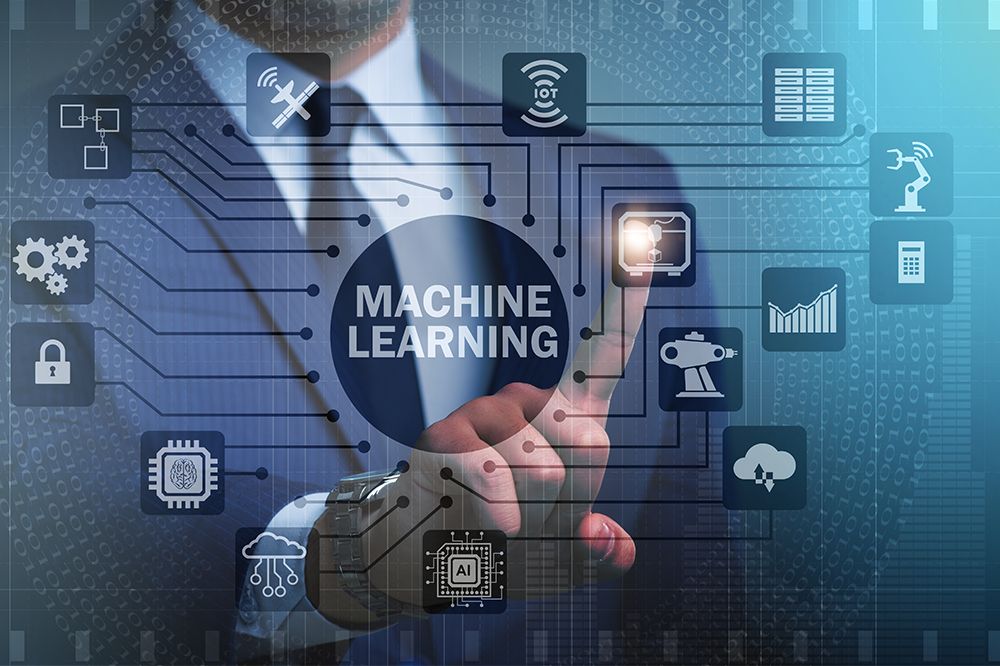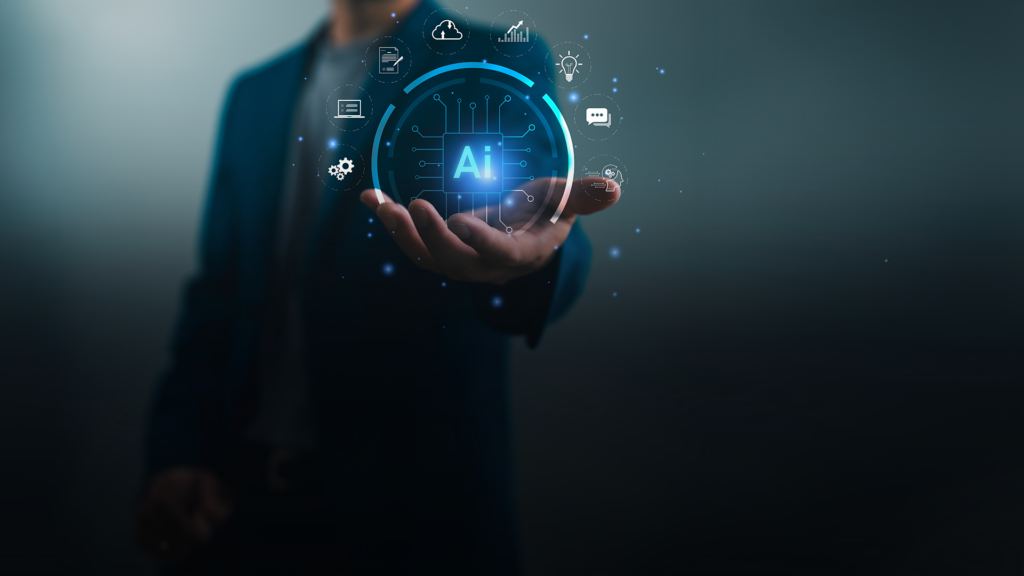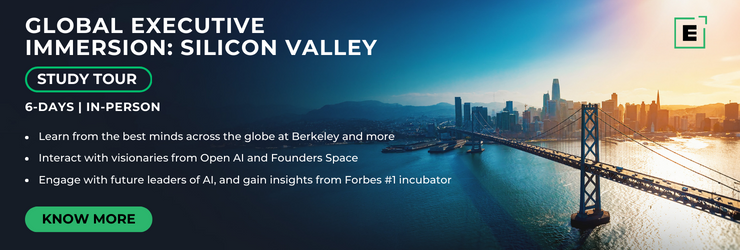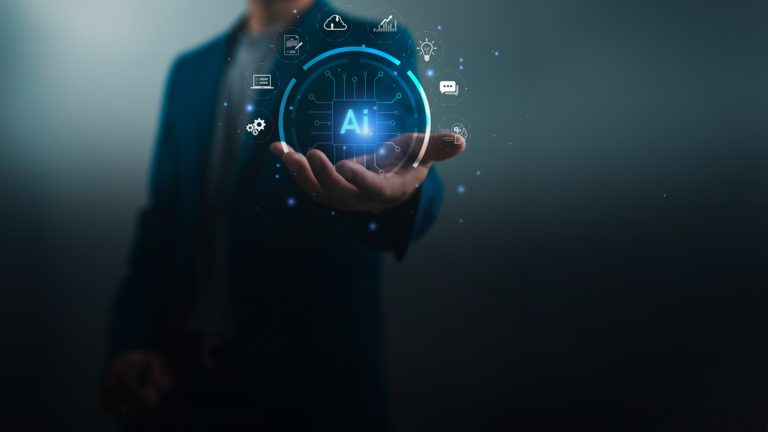Here’s the Truth About AI Future Prediction and its Accuracy

We are living in an era of artificial intelligence. Everyone from countries to companies began to develop Artificial Intelligence (AI) and machine learning algorithms following the launch of ChatGPT in 2022. As a result, AI permeates almost every aspect of our lives via phone assistants, content personalization tools, and customer service. The use of AI prediction in future forecasting has also gone up as AI can perform this complex task within seconds. The big question, however, is this: Is AI future prediction reliable? It is important to evaluate the accuracy of AI predictions because the market for AI is expected to be worth nearly $17 billion by 2027 in India. So, let’s dive deep into the world of AI future prediction, how it ensures accuracy, and why it will redefine predictive analytics altogether.
How Does AI Predict the Future?
Let’s first get this out of the way: AI future prediction is not to be confused with a crystal ball. Any predictions leveraging AI rest on analyzing large amounts of data to recognize patterns and deliver results. Here’s how:
1. Machine Learning
Many organizations train machine learning algorithms on historical data to sniff out relationships between variables. These models can then offer insights into future outcomes based on the recognizable patterns.

2. Deep Learning
Deep learning algorithms use neural networks to learn complex patterns in data. They are quite handy for tasks such as image and speech recognition, natural language processing, and predicting sequences.
3. Predictive Analytics
Many businesses often rely on predictive analytics to crunch historical data as well as the latest trends to predict the direction of future events or behaviors. It is used for forecasting sales, customer behavior, and market trends.
4. Simulation
It is comparatively easier for AI to simulate different scenarios based on existing models to suggest potential outcomes. Many sectors, such as finance, economics, and climate science deploy simulations regularly.
5. Statistical Approach
There are several statistical techniques, such as regression analysis, time series analysis, and Bayesian inference, that help AI process data for future forecasting.
ALSO READ: Will AI Replace SEO: What Can We Guess From 10,000 Years of Human History?
What are the Limitations of AI in Predicting Future Events?
The accuracy of AI predictions is not a foregone conclusion as there are limitations to its abilities. Here are some of them:
1. Data Dependency
The quality of data influences the standard of AI future prediction. In other words, inaccurate, incomplete, or biased data will inevitably result in misleading forecasts. Imagine Netflix trying to predict viewing patterns in India based on data from American subscribers.
2. Butterfly Effect
The theory argues that AI cannot account for small changes in initial conditions, affecting long-term forecasts consequently. For example, an AI model regulating traffic flow can fall into disarray if a surprise festival is not included in its historical data.
3. Black Swan Events
The world is witness to many unforeseen events such as natural disasters or economic crashes that can throw off most AI predictions. The unpredictable nature of these events makes them difficult to incorporate into AI models.
4. Limited Understanding
AI’s lack of subtext gives way to blind spots in its predictions, especially in complex situations with many variables. AI can basically pick valuable stocks by crunching data. However, it cannot account for the role of social media hype and human emotions.
5. Model Complexity
The intricacy of AI models also leads to lack of transparency. It is impossible to trust the results, making it difficult to affix responsibility.
ALSO READ: Responsible AI: Top 9 Aspects of Building Ethical AI Systems
Can AI Outperform Human Predictions?
It is no secret that AI is undoubtedly faster than humans, but it can only do so under certain conditions. Let’s find out how:
1. Processing Speed
The processing speed of AI enables it to scrutinize vast amounts of data within a matter of a few seconds or minutes. Humans cannot perform this task at the same speed, making AI crucial in tasks where large-scale data analysis is required.
2. Pattern Recognition
AI algorithms are better at recognizing complex patterns and including multiple data sources, especially those that may not be discernible to humans. The ability helps refine the accuracy of AI future prediction, which cannot be matched by humans.
3. Consistency
Humans are prone to error on account of biases, emotions, and cognitive limitations. In contrast, AI algorithms remain consistent in their decision-making. It helps to deliver more reliable predictions in the long run.
The aforementioned factors do not give AI future prediction a clean chit. We have already discussed how AI has certain limitations. It is, therefore, likely that humans will deliver better results when AI models do not have sufficient data for certain domains. There are also ethical and social considerations where it is critical to acknowledge context to make judgments. These situations expose why AI models in general cannot replace humans just yet.
ALSO READ: Why Retrieval-Augmented Generation is the Key to Accurate Information
How Can Businesses Benefit From AI-Powered Future Forecasting?

1. Streamlines Decision-Making
The contribution of AI models in helping make informed decisions is one of the most important benefits. They gather large volumes of data to deliver predictions about future trends, customer behavior, and market dynamics.
2. Optimizes Operations
Firms can use AI future prediction to make their supply chains efficient by reducing stockouts, ensuring sufficient inventory, and allocating appropriate resources. It can thus save costs, minimize waste, and become sustainable.
3. Provides Personalization
Every customer expects businesses to anticipate and cater to their needs according to their preferences and behavior. AI predictions can tailor marketing campaigns, product recommendations, and customer service and consequently raise satisfaction levels.
4. Mitigate Risk
Every organization deals with many uncertainties like economic fluctuations, supply chain disruptions, or regulatory changes. They can use AI to mitigate these risks and refine their long-term strategy to safeguard their investments.
5. Develop Products
A company obtains a competitive edge if it iterates proactively and introduces new products faster than other firms. Businesses can therefore leverage AI to gather insights on emerging market trends and consumer preferences to drive their innovation and meet changing customer needs.
What are the Ethical Implications of Using AI for Prediction?
1. Discrimination
The presence of bias in data used for AI predictions can deliver discriminatory results. For instance, an AI model sifting through job applications might favor applicants with certain surnames, invariably excluding people who do not feature in the data sets.
2. Privacy
Every AI model often deals with personal data, making it important to collect, store, and use data ethically. An AI system evaluating health insurance claims can deny coverage to people if they have pre-existing conditions, raising privacy concerns.
3. Algorithmic Bias
An AI model can exhibit bias in its design itself. For example, an AI system used in facial recognition, trained on historical data, might favor certain demographic groups disproportionately, which can lead to unfair targeting.
4. Accountability
Many complex AI models bake opacity in their processes. It is difficult to hold anyone accountable in case of errors or harm. Imagine an AI rejecting college students without a clear explanation, making it impossible for the student to challenge the decision.
5. Social Manipulation
AI predictions can manipulate people’s behavior. For instance, a firm can target a particular individual based on their purchase habits with incessant advertising and cajole them into buying its product.
ALSO WATCH: Day 3 | If Software is Eating the World, AI is its Teeth | GSV+Emeritus India Summit
There are many pros and cons of using AI but one thing is indisputable—businesses are ramping up their AI adoption. They are looking for professionals with expertise in all aspects of AI. Emeritus offers comprehensive artificial intelligence courses and machine learning courses that impart practical skills and knowledge to thrive in today’s data-driven world. These courses are curated by experts to cover everything from basic concepts to advanced techniques. Join one of these courses today and take the first step toward harnessing the power of AI and ML in your career.
Write to us at content@emeritus.org










